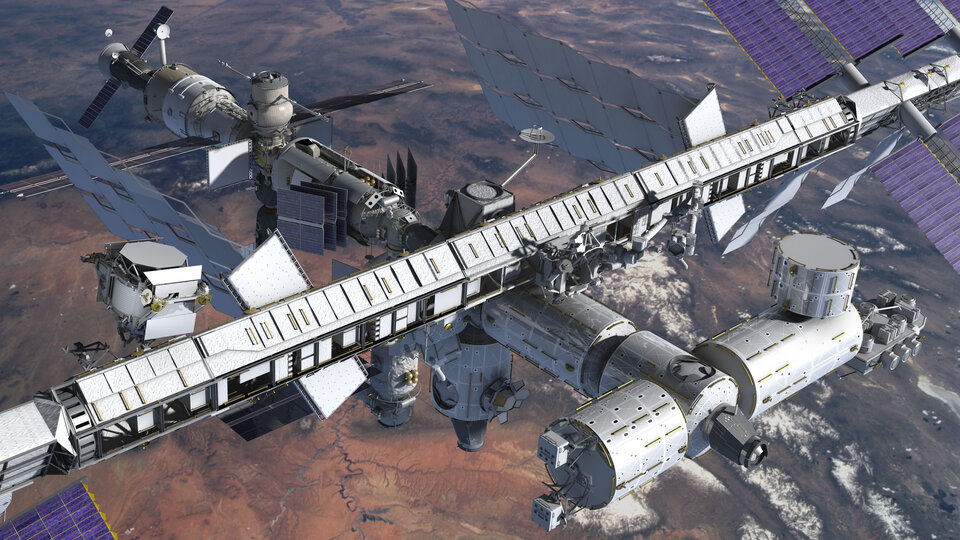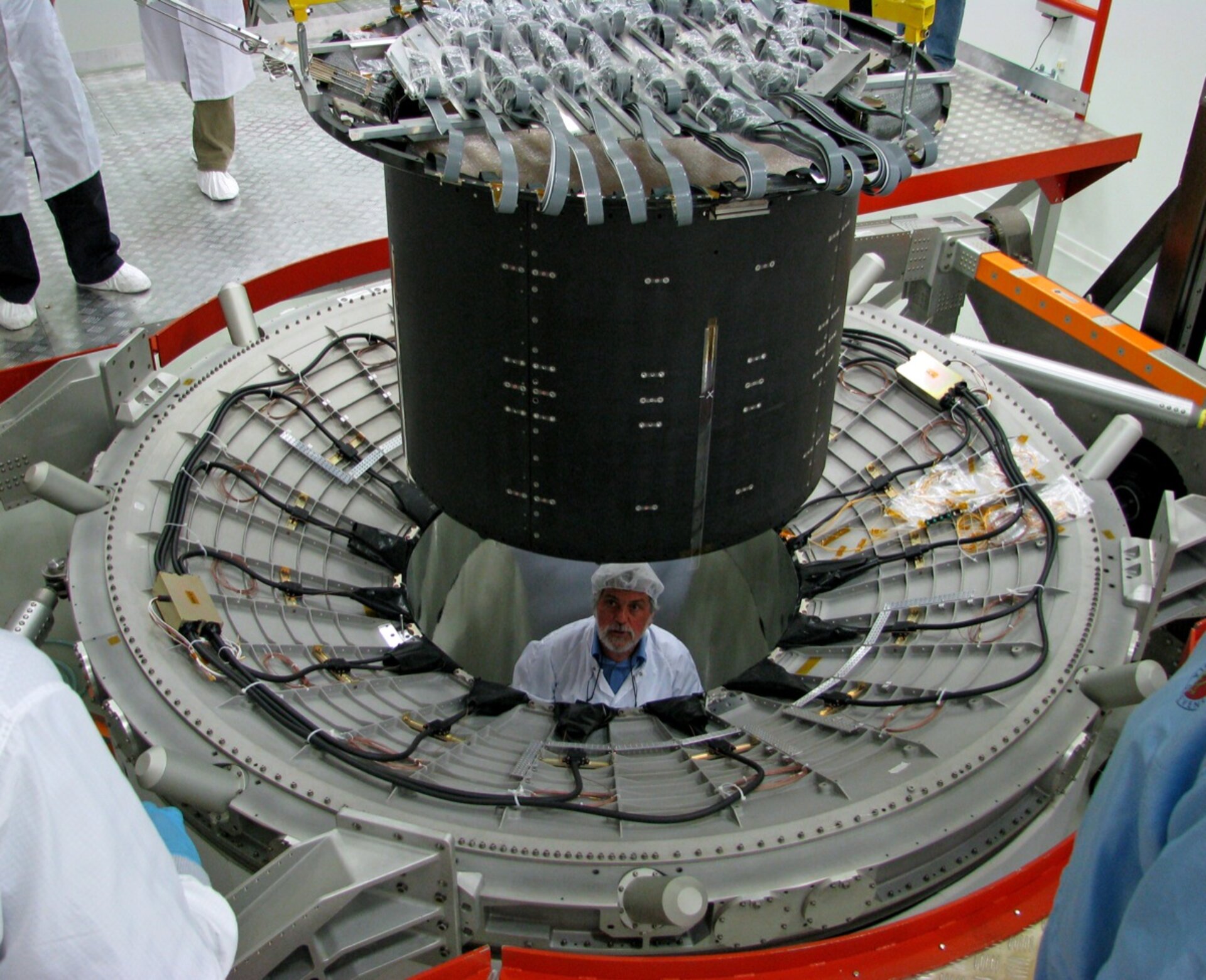The antimatter hunter
The Space Shuttle delivered the second Alpha Magnetic Spectrometer (AMS-02), a state-of-the-art cosmic-ray detector designed to examine fundamental properties of matter and the origin of the Universe. Complementing the work of the Large Hadron Collider, scientists are looking for a better understanding of antimatter and dark matter.
Already dubbed the Hubble Space Telescope of cosmic rays, AMS-02 collects primary cosmic rays that, after travelling for hundreds of millions of light years, are accelerated by strong magnetic fields.
AMS-02 is not only the largest and most complex scientific instrument installed on the International Space Station – its magnetic field is 4000 times stronger than Earth’s – but it is also the largest international collaboration on a single experiment in space
“The most exciting objective of AMS is to probe the unknown; to search for phenomena which exist in nature that we have not yet imagined nor had the tools to discover.” - Samuel Ting.

The Space Station is a unique platform. The stability, lengthy exposure and the possibility of onboard refurbishment make it the ideal platform for the experiment. The Station is able to provide the resources required by AMS-02 (downlink, power, exposure time and reboost capability), which would be much harder to get on a free-flying satellite.

The multinational AMS project is led by Nobel Prize Laureate Samuel Ting, with significant European participation coordinated by Prof. Roberto Battiston. The success has been mostly built by institutes in Italy, France, Germany, Spain, Portugal and Switzerland, together with the participation of US, China, Russia and Taiwan. In all, the experiment’s team consists of 56 institutes from 16 countries.
Orbiting Earth at an altitude of about 300 km, AMS-02 will study with an unprecedented accuracy of one part in 10 billion the composition of primary cosmic rays, exploring a new frontier in particle physics, searching for primordial antimatter and studying the nature of dark matter.















 Germany
Germany
 Austria
Austria
 Belgium
Belgium
 Denmark
Denmark
 Spain
Spain
 Estonia
Estonia
 Finland
Finland
 France
France
 Greece
Greece
 Hungary
Hungary
 Ireland
Ireland
 Italy
Italy
 Luxembourg
Luxembourg
 Norway
Norway
 The Netherlands
The Netherlands
 Poland
Poland
 Portugal
Portugal
 Czechia
Czechia
 Romania
Romania
 United Kingdom
United Kingdom
 Slovenia
Slovenia
 Sweden
Sweden
 Switzerland
Switzerland






























